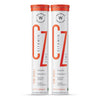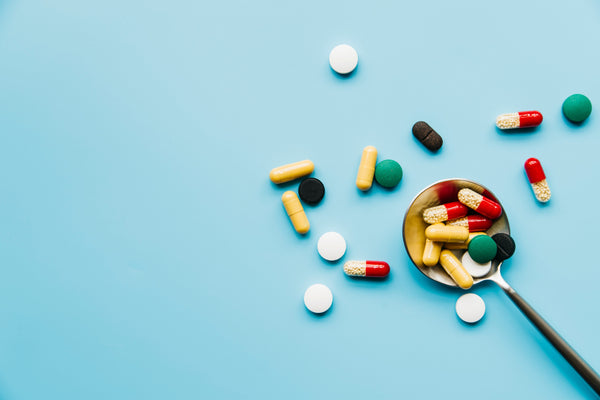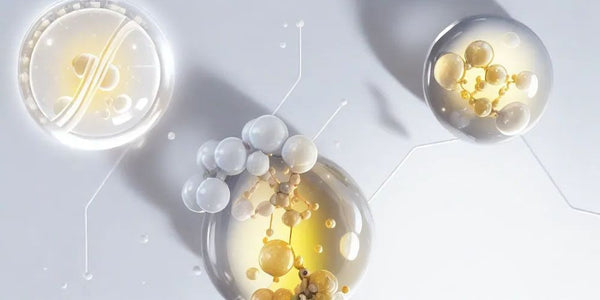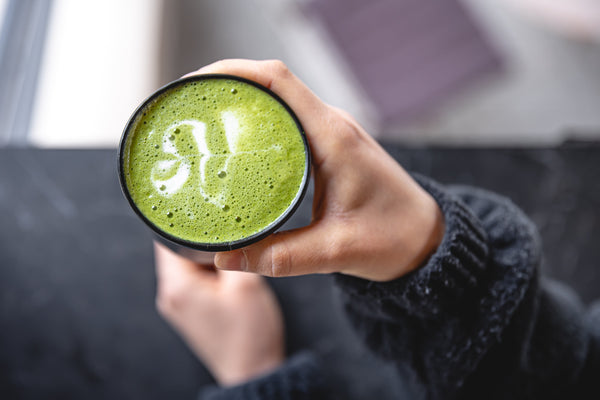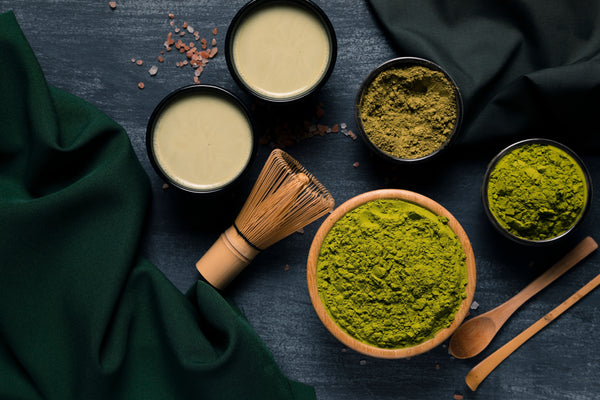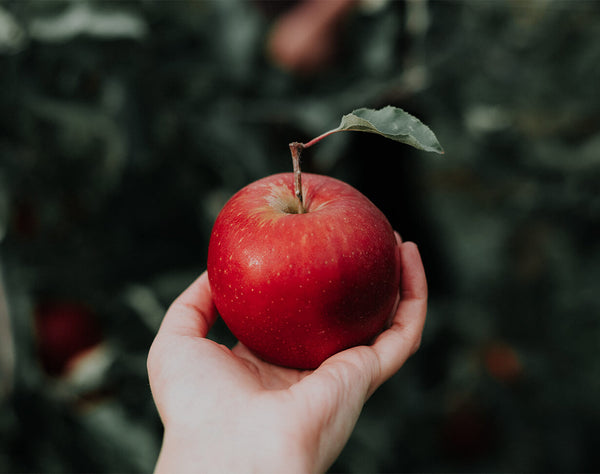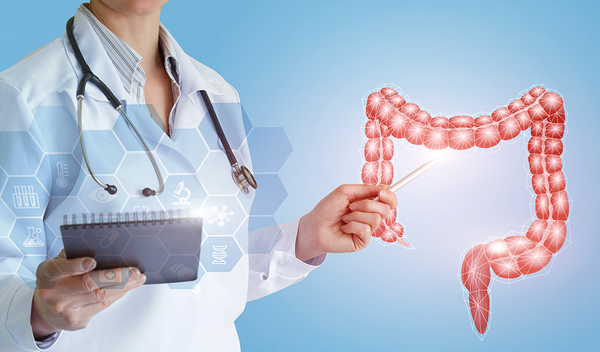Still, drinking regular green tea? It's time to switch to matcha! We are not saying Green tea is ineffective or doesn't have any health benefits, we are just asking you to reap its benefits 10 times over. You read that right! 1 cup of matcha green tea is equivalent to 10 cups of regular green tea. Not only is it more powerful, but it also provides much more antioxidants than regular green tea.
Green tea is produced from the leaves of the plant Camellia sinensis. The health benefits that green tea provides are attributed to its catechin content. There are 4 types of catechins present in green tea: epicatechin (EC), epicatechin 3 gallate( ECG), epigallocatechin (EGC), and epigallocatechin 3 gallate ( EGCG). EGCG is the most abundant catechin present in teas and has many benefits, including protecting the heart, fighting inflammation, preventing free radical damage, and many more. Scroll down to learn more about EGCG and how it makes Matcha Green Tea a great antioxidant supplement.
Sources of EGCG
Around 50–80% of the catechins in 200–300 gms brewed green tea are EGCG. Although most abundantly found in green tea, EGCG is also present in small amounts in-
- Teas such as black, white, and oolong
- Fruits such as blackberries, cranberries, strawberries, patches, kiwi, cherries, pears, apples, and avocados
- Nuts such as pistachios, pecans, and hazelnuts
Matcha: The Surplus Source of EGCG
In Japanese tea ceremonies, a unique and healthier green tea known as matcha is served. Regular green tea goes through a processing step and is created with dried or cooked tea bits, which tends to lessen their total nutritional value. Matcha green tea, on the other hand, is made using whole tea leaves that retain much more antioxidants, vitamins, minerals, and amino acids.
The concentration of EGCG in matcha is three times higher than the highest concentration value in other green teas. According to studies, a dried matcha tea leaf has 137 times more EGCG than a dried leaf of any other variety of green tea. Due to the significant amount of EGCG it contains, matcha is regarded as one of the best antioxidant supplements.
EGCG is a Potent Antioxidant
In terms of health, antioxidants play a significant role in everything from preventing chronic conditions like diabetes to providing anti-aging effects.
First, let’s understand what an antioxidant is and its role in scavenging free radicals.
Healthy cells have molecules with just enough electrons in the outer shell for their normal functioning. Free radicals (unstable molecules in cells lacking an electron in their outer shell) come and try to attach themselves to the healthy molecules of cells, trying to steal away their atoms, causing oxidative stress, which leads to cell damage. This causes a variety of diseases and skin problems, such as wrinkles and premature aging.
Antioxidants prevent this cell damage by stabilizing the free radicals while offering them the extra atoms they need. Antioxidant foods help our body build immunity against a host of diseases, ranging from the common cold to even macular degeneration (vision impairment).
Some examples of antioxidant foods are berries, and colored vegetables such as red, orange, yellow, dark green, etc.
Free radicals are generated by the body in response to toxins such as UV rays, smoke, tobacco, stress, and air pollution and as a by-product of energy production. Excess quantities of these cause havoc in our bodies. EGCG, or Epigallocatechin Gallate is a catechin that belongs to the flavonoid (plant pigment) family, while flavonoids are a type of polyphenol that is an antioxidant. Popularly known for their ability to prevent cell damage caused by free radicals, antioxidants help protect and rejuvenate almost all types of cells in our body. EGCG acts as a potent antioxidant through various mechanisms.
- By becoming a hydrogen or electron donor. It binds with the free electrons of iron and copper, which otherwise tend to amplify oxidative stress in cells.
- It stops the production of prooxidants (chemicals that cause oxidative damage), like superoxidase.
- Nitric oxide is a molecule that is important for various biological processes in the human body. However, a higher concentration of this nitric oxide can lead to the production of substances (proinflammatory mediators) that cause oxidative damage through inflammation in the body. EGCG inhibits these mediators.
- It also blocks the production of substances released by the immune system (DNA factors such as NF-kB or AP-1) that promote oxidative stress, thereby suppressing inflammation.
- It also enhances/doubles the free radical scavenging capacity of other antioxidants.
Aside from being a potent antioxidant, EGCG also has additional beneficial properties:
- Anti-inflammatory: Your body uses inflammation as a defense mechanism against dangerous pathogens. It takes place when the body releases its white blood cells to defend itself from different bacteria or viruses. Additionally, when an injury occurs, inflammation is produced to aid in the healing process. But occasionally, even in the absence of a pathogen or injury, the immune system is stimulated to release inflammatory molecules. If this inflammation persists for a long time in the body, it can develop into chronic inflammation, which manifests as pain, weariness, stiffness, and other symptoms.
EGCG acts as an anti-inflammatory substance by suppressing the genes, proteins, or enzymes that are involved in the process of inflammation.
- Antibacterial: EGCG is a potent antibiotic, and when combined with a certain class of antibiotics, it may be used to treat bacterial infections. EGCG is able to bring about this antibiotic activity by blocking cell enzymes and causing oxidative stress in the cells of bacteria, thereby inhibiting their growth.
EGCG provides protection against dental caries by stopping the production of Streptococcus mutant bacteria in oral cavities. It brings about this effect by blocking the enzyme activity that is responsible for the synthesis of this bacteria.
Health Benefits of EGCG in Matcha Green Tea
-
Cardiovascular Health:
EGCG protects your heart by helping you lower your cholesterol levels, promoting smooth blood flow, reducing oxidative stress, reducing inflammation, and protecting cardiomyocyte function (the cell responsible for the contraction of the heart).
Hyperlipidemia, i.e., high cholesterol levels, can lead to atherosclerosis, a condition that deposits fat inside the walls of arteries, blocking the flow of blood to various organs, including the heart. Atherosclerosis can cause blockages in the blood and oxygen supply to the heart, which can lead to a heart attack.
-
Neurological Benefits:
As we age, the brain's structure and functions keep changing. Most commonly, it is found that with aging comes a decline in performance on cognitive tasks like the speed of processing, memory, and simple routine tasks. EGCG has been found to enhance such age-related cognitive functions and prevent blockage of blood supply to the brain. It has been shown to reduce inflammation in brain cells and protect them by regulating the proteins involved in brain cell death.
One of the most common neurodegenerative diseases that take place with age is Alzheimer’s disease. While there are various factors involved, oxidative stress is one of the main reasons for the development and progression of Alzheimer’s Disease. EGCG, being a natural source of antioxidants, helps prevent the onset of Alzheimer’s Disease.
-
Metabolism & Weight loss:
"Wanna lose weight? Add green tea to your routine". Haven’t you heard this before? But how does green tea help? Well, EGCG is responsible for managing weight. Weight gain may happen due to various factors, an imbalance of energy input versus output being one of them. Reducing energy (calorie) intake and increasing energy (calorie) expenditure aid in fat loss. EGCG helps increase energy expenditure, thereby assisting you in losing weight. This effect of EGCG may be due to its ability to help break down fatty acids or by influencing the brain to increase your energy expenditure, bringing about changes in appetite and boosting enzymes that cause a fat breakdown.
-
Managing Diabetes:
Diabetes occurs when your body cells are unable to take in glucose molecules released from the food you eat. Insulin resistance is one of the main causes of type 2 diabetes. Insulin acts as a messenger that generally picks up glucose molecules from the circulating blood and delivers them inside our body cells. When there is too much fat in the body, it gets accumulated in cells. This excessive fat accumulation creates oxidative stress in cells as they lack oxygen supply, unlike other healthy fat cells. This oxidative stress impairs the ability of cells to take in the glucose molecules brought to their surface by insulin. This process is called insulin resistance. EGCG helps reduce insulin resistance by decreasing body fat and reducing oxidative stress in fat cells.
Matcha Supplements for your Daily EGCG Dose
If you find yourself juggling between work and life and wish to have a quick dose of this super antioxidant, you may opt for matcha supplements as well. You may find matcha on market shelves in the form of powders, capsules, gummies, or even effervescent tablets. Effervescent tablets can prove to be a better alternative as they are 100% bioavailable compared to conventional tablets or capsules, dissolve completely, and are gentle on the stomach. Not only do they taste delicious, but they are easy to consume and also help you increase your hydration levels.
Wrapping Up
We cannot escape free radical damage, but we can always supply our bodies with antioxidants. One cup of matcha green tea is equivalent to 10 cups of regular green tea. So what are you waiting for? Go grab your cup of this superantioxidant. You may make your own tea, or we’ve hinted at the best type of supplement for a quick dose as well. However, do inform your general practitioner before starting any new supplement.
References
https://www.mdpi.com/2306-5710/3/1/6
https://www.ncbi.nlm.nih.gov/pmc/articles/PMC2903211/
https://www.hindawi.com/journals/omcl/2020/9723686/
https://pubmed.ncbi.nlm.nih.gov/14518774/
Effects of green tea and EGCG on cardiovascular and metabolic health - PubMed (nih.gov)
Changes in Cognitive Function in Human Aging - PubMed (nih.gov)








